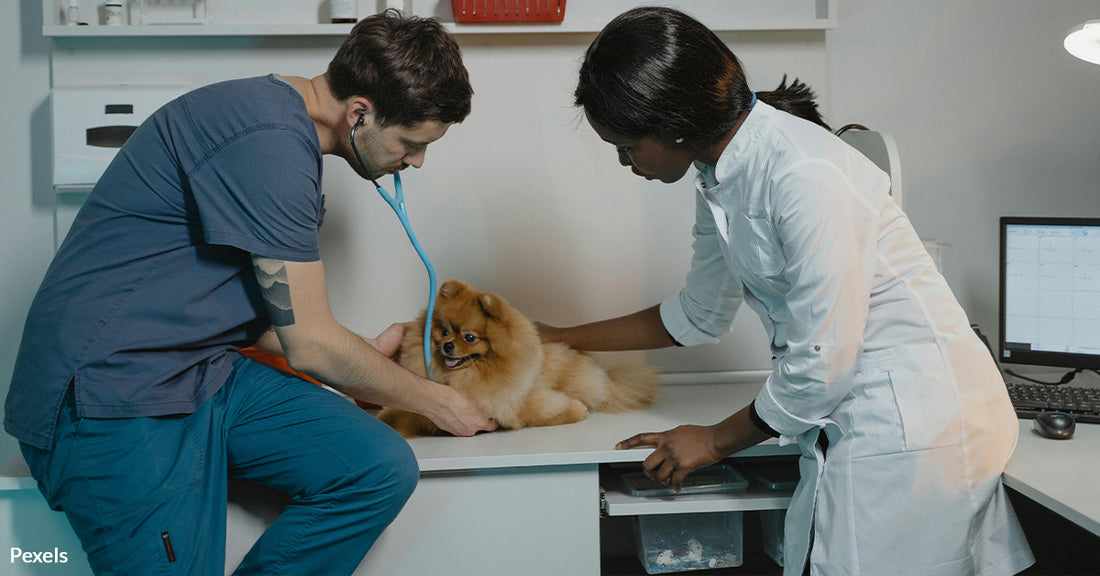Corporate Takeovers Are Putting Pets’ Lives at Risk, and Here's How
Matthew Russell
The veterinary industry has seen a dramatic shift as private equity firms have increasingly taken ownership of pet care companies and veterinary clinics across the United States.
This trend, initially driven by the industry's stability and profitability, has sparked a growing debate about the impact on both pet owners and veterinary professionals.
As more veterinary practices come under corporate control, concerns are rising about the implications for care quality, cost, and the future of independent veterinary practices.

The Financial Appeal of Veterinary Clinics
Private equity firms are drawn to the veterinary industry for several reasons. One of the primary attractions is its resilience against economic downturns. Unlike many other sectors, veterinary care remains in demand regardless of the broader economic climate.
This steady demand, combined with the fact that most veterinary services are paid for out of pocket, makes the industry particularly lucrative for investors. Over the past several years, private equity firms have poured billions into the sector, rapidly acquiring small, independent clinics and rolling them into larger chains, as TBR News Media details.
The numbers tell the story: between 2017 and 2022, private equity firms invested approximately $45 billion in the veterinary sector, a sum that underscores the financial potential seen in this market by investors.
The allure of quick profits often drives these firms to acquire practices with the intention of selling them at a higher price within a few years, according to Rolling Stone. However, this approach, while profitable for investors, has raised significant concerns among veterinarians and pet owners alike.

Impact on Pet Care Costs
One of the most immediate effects of private equity's entry into the veterinary industry has been a noticeable increase in the cost of care. According to The Atlantic, veterinary prices have risen significantly faster than overall inflation rates.
While general inflation has somewhat stabilized, the cost of veterinary services surged by nearly 10% in just the past year, a rise that many attribute directly to the influence of private equity ownership. This price increase is not just a minor inconvenience for pet owners—it can have severe consequences for their ability to provide necessary care for their pets. In many cases, pet owners find themselves facing hefty bills for services that, just a few years ago, would have been more affordable.
The higher costs are often justified by private equity-owned clinics as necessary for maintaining high standards of care. However, many in the industry argue that these price hikes are more about maximizing profits than improving service quality, Stateline reports.

Quality of Care and Working Conditions
The rise in costs is not the only concern associated with private equity's growing footprint in the veterinary field. There is also increasing evidence that the quality of care may be suffering as a result of the drive for profits.
Many veterinarians working in corporate-owned clinics report feeling pressured to prioritize revenue generation over patient care. This can lead to situations where unnecessary tests and procedures are recommended, not because they are in the best interest of the animal, but because they boost the clinic's bottom line, reports The Nation.
Veterinarians like Melissa Ezell, who has worked in a clinic owned by a private equity firm, have spoken out about the pressures they face. Ezell described how she and her colleagues were increasingly urged to focus on the financial aspect of their appointments, with management pushing for higher revenue from each patient visit. This shift in priorities, Ezell believes, compromises the ethical standards of veterinary care and diminishes the overall quality of service provided to pets, she told Stateline.
Moreover, the working conditions for veterinarians in these corporate settings have also come under scrutiny. Reports indicate that many veterinarians experience burnout due to the increased demands placed on them by their corporate employers.
The focus on meeting financial targets often means longer hours and a heavier workload, leading to job dissatisfaction and a potential exodus of skilled professionals from the industry, The Nation reports.

The Future of Independent Practices
As private equity firms continue to acquire veterinary practices, the future of independent clinics appears increasingly uncertain. The trend toward consolidation is making it difficult for small, independently-owned practices to compete. In some cases, veterinarians who had hoped to purchase the clinics where they worked have been outbid by large corporate entities, leaving them with little choice but to work under new ownership or leave the profession altogether, TBR News Media reports.
This consolidation is particularly troubling for veterinarians like Dr. Steven Templeton, who have witnessed the gradual disappearance of independent clinics in their communities. Templeton told Stateline that the personalized care and flexibility that independent practices can offer are often lost when these clinics are absorbed into larger corporate chains.
For many pet owners, this means losing the close, trusting relationships they have built with their local veterinarians, as well as facing higher costs and potentially lower-quality care.

What Lies Ahead?
The growing influence of private equity in the veterinary industry raises important questions about the future of pet care. While the influx of capital has undoubtedly allowed for some advancements, such as improved technology and facilities, it has also brought about significant challenges, The Atlantic reports.
The rising costs and concerns about care quality are issues that cannot be ignored. As the debate continues, it is clear that both pet owners and veterinary professionals will need to navigate this new landscape carefully.
Regulatory bodies and industry stakeholders may need to step in to ensure that the primary focus remains on providing high-quality, ethical care to pets, rather than maximizing profits at their expense. Without such oversight, the trend of corporatization in veterinary medicine could lead to a future where access to affordable, quality care is increasingly out of reach for many pet owners.
Click below and support efforts to preserve quality veterinary care in the United States!

